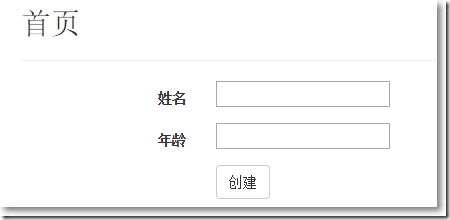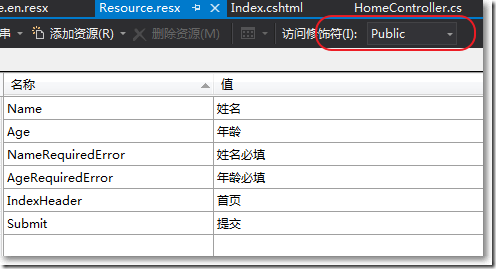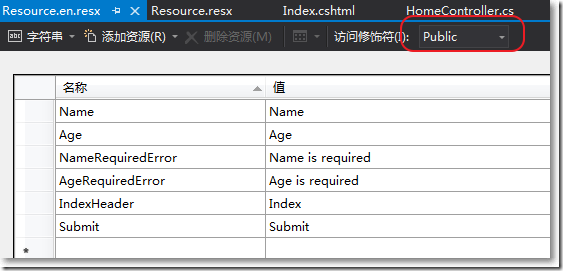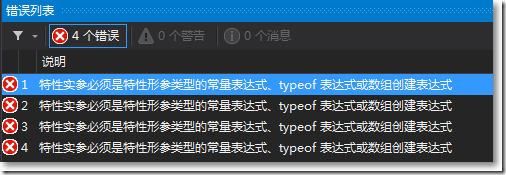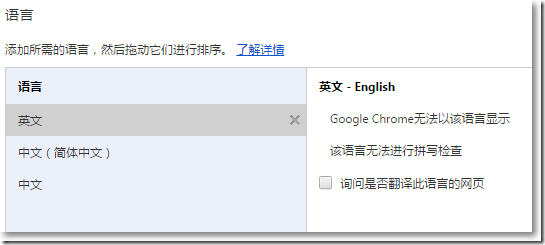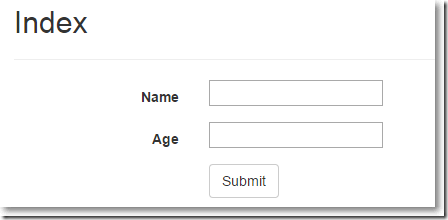- Java学习笔记——并发编程(三)
__________习惯
javajava
一、wait和notifywait和notify原理Owner线程发现条件不满足,调用wait方法,即可进入WaitSet变为WAITING状态BLOCKED和WAITING的线程都处于阻塞状态,不占用CPU时间片BLOCKED线程会在Owner线程释放锁时唤醒WAITING线程会在Owner线程调用notify或notifyAll时唤醒,但唤醒后并不意味着立刻获得锁,仍需进入EntryList重
- C语言开发以及维护用到的工具简介
812503533
蓦然回首---再看C语言c语言编辑器开发语言
C语言作为一门经典的编程语言,广泛应用于系统编程、嵌入式开发、操作系统内核等领域。经过第一部分的介绍,已经可以实现一些最简单的功能了,比如文字版本的计算器,猜数字小游戏,通过调整输出格式从而输出优美的图形等等,那么在未来的实际使用中,使用一些什么工具去进行c语言的编辑,查看,编译,运行等等,本文将做简单的介绍,后续再慢慢完善相关的内容。1、编辑器所有语言在编写的时候使用的工具就叫做编辑器,C语言程
- C 语言中的数组详解
812503533
c语言java开发语言
在C语言中,数组是一种非常基础且常用的数据结构。数组是存储一组相同类型元素的集合,允许我们以统一的方式访问和操作这些元素。C语言中的数组不仅在编程中使用广泛,而且它的灵活性和效率使得它成为了许多算法实现的基础。本篇文章将深入分析C语言中的一维数组,包括定义、存储方式、操作方式、常见问题等等,所有的数据结构都可以从这几个方面来学习。1.数组的定义与存储方式1.1一维数组的定义数组的定义方式包括数组大
- C语言回调函数
812503533
c语言java开发语言
前文函数指针中说到了,函数指针的一个重要作用就是实现回调函数,那么什么是回调函数,回调函数有什么作用,在那些场景下使用,具体应该怎么使用,本文就分享下这块的知识。1、回调函数简介回调函数(CallbackFunction)是指将一个函数作为参数传递给另一个函数,然后在适当的时候由被调用的函数执行该回调函数。回调函数是实现事件驱动编程、异步编程和灵活接口设计的核心工具。回调函数通常用于实现高阶函数,
- Linux tcpdump -any抓的包转换成标准的pcap
812503533
linuxtcpdump网络协议tcp/ip
在Linux中使用tcpdump-any抓包并转换为标准pcap文件时出现额外字段,通常与链路层协议头部的差异以及pcap文件格式的兼容性有关。以下是详细原因和解决方案:一、问题原因分析-any选项的局限性tcpdump-any会自动猜测链路层协议类型(如Ethernet、IEEE802.11、PPP等),但可能因环境复杂导致误判。例如:在混合网络(如同时包含有线和无线流量)中,自动检测可能失败。
- 暮然回首--再看C语言--常量与宏定义
812503533
蓦然回首---再看C语言c语言
常量与宏定义在C语言中,常量和宏定义是非常重要的概念。它们有助于提高程序的可读性、可维护性,并且能够避免重复代码。常量是指在程序运行期间其值不发生变化的变量,而宏定义是一种预处理指令,用于定义常量或代码片段,在编译阶段进行替换。一、常量常量是指在程序执行过程中其值不可改变的量。在C语言中,我们可以使用const关键字来声明常量。常量分为以下几种类型:常量整数:例如constinta=5;常量浮点数
- 关于Jquery基本内容一
gloria123_
jquery前端javascript
jQuery(jQ)html+css+js1jQ是一个js库,封装了大量的特定的集合(函数和方法)如animate()、css()、show()等2使用jQ大大提高开发效率,简化dom操作常见的js库jQueryYUIDojoExtJszeptojQuery选择器$(selector)筛选方法parent()$(“li”).parent()children(selector)$(“ul”).chi
- 关于tomcat
gloria123_
tomcatjava
**web应用服务器安装在服务端的服务产品,在web服务器上放置一些允许客户端直接访问的资源,启动服务,客户端通过ip+端口号即可以访问web应用服务器上的资源下载tomcat压缩包并解压后:tomcat:bin目录:存放启动和停止服务等的脚本mac电脑通过命令sudoshstartup.sh来启动,windows系统通过bat可以手动启动conf目录:存放tomcat服务器配置文件web.xml
- 推荐一款革命性的游戏对话管理工具:Godot 4 Dialogue Manager
袁菲李
推荐一款革命性的游戏对话管理工具:Godot4DialogueManager项目地址:https://gitcode.com/gh_mirrors/go/godot_dialogue_manager项目介绍在游戏开发领域中,对白设计是构建沉浸式剧情和角色深度的关键。Godot4DialogueManager,一个专为Godot引擎打造的开源插件,提供了直观且强大的分支对话编辑器和运行时解决方案。这
- Godot 对话管理器教程
陆汝萱
Godot对话管理器教程godot_dialogue_managerApowerfulnonlineardialoguesystemforGodot项目地址:https://gitcode.com/gh_mirrors/go/godot_dialogue_manager1.项目介绍Godot对话管理器是一个专为Godot游戏引擎设计的插件,它提供了编辑器和运行时支持,帮助你构建分支型对话系统。这个
- 12.1go语言sync.Map和atomic包
chxii
go语言#go基础后端golang
sync.Map在Go语言中,sync.Map是sync包提供的一个并发安全的映射(map)类型。与内置的map类型不同,sync.Map无需在外部加锁即可安全地在多个goroutine中进行读写操作。这使得sync.Map在某些特定场景下,如高并发读写、键值对频繁变动等,具有更好的性能表现。1.特点并发安全:sync.Map内部实现了同步机制,多个goroutine可以同时对其进行读写操作,而无
- 【Swift】面向协议编程之HelloWorld
coooliang
Swiftswift
定义一个协议(protocol),swift中可以对protocol进行扩展(extension)通过协议的扩展可以对函数有默认的实现protocolSleepable{funcsleep()}protocolEatable{funceat()}extensionEatable{funceat(){print("eatfood")}}在类(class)或结构体(struct)中实现protocol
- 异地收款被拦截?一文读懂聚合二维码风控解决方案
畅联支付
大数据支付经验分享笔记
随着移动支付的普及,许多商家使用聚合二维码实现多平台收款。但近期不少用户反馈"人在外地扫自家二维码付款却被风控拦截",这不仅影响经营效率,还可能引发资金冻结风险。今天我们就来解析这个问题的成因和应对策略。一、为什么会触发风控?1.地理位置异常:支付系统发现收款设备与常用地址存在跨省变动(如北京商家突然在上海收款)2.交易行为突变:短期内出现远超日常交易量的资金流动3.信息不匹配:营业执照注册地与收
- SeisMoLLM: Advancing Seismic Monitoring via Cross-modal Transfer with Pre-trained Large Language
UnknownBody
LLMDailyMultimodal语言模型人工智能自然语言处理
摘要深度学习的最新进展给地震监测带来了革命性变化,但开发一个能在多个复杂任务中表现出色的基础模型仍然充满挑战,尤其是在处理信号退化或数据稀缺的情况时。本文提出SeisMoLLM,这是首个利用跨模态迁移进行地震监测的基础模型,它无需在地震数据集上进行直接预训练,就能充分发挥大规模预训练大语言模型的强大能力。通过精心设计的波形标记化处理和对预训练GPT-2模型的微调,SeisMoLLM在DiTing和
- 50 种不同编程语言的“Hello World”,你知多少?
逗逗逗逗666
编程helloworld编程语言
当我们学习一门编程语言时,都是从“Hello,World!”开始。所有程序员在其职业生涯中,都至少接触过一个经典的“Hello,World!”程序。通常程序员会使用多种编程语言,多的甚至实现了十几种。还有一种称为TTHW(Timeto“Hello,World!”)的方法,来衡量程序员创建一个新的“Hello,World!”程序的时间。你可以用多少种不同的语言编写一个“Hello,World!”程序
- 【批量图片区域识别改名】有没有可以自动批量识别jpg图片上的区域文字,并直接提取文字命名的软件么? 没有我们教你基于WPF和腾讯api的方案做一个
如沐春风菜鸡收割机
图片OCR识别扫描PDF提取内容PDF明细提取表格工具实现PDF明细转ExcelPDF数据导出Excel批量PDF内容提取工具批量图片识别区域内容改名批量图片识别多个区域内容导表格
应用场景描述在很多实际工作场景中,我们可能会遇到大量的图片文件,这些图片中包含特定区域的文字信息,比如发票图片上的发票号码、合同图片上的合同编号等。手动识别并为图片命名效率极低且容易出错。使用自动批量识别JPG图片上的区域文字,并直接提取文字为图片命名的软件,可以大大提高工作效率,减少人工操作带来的错误。实现方案:基于WPF和腾讯云OCRAPI步骤1:准备工作注册腾讯云账号:访问腾讯云官网(腾讯云
- 【春招笔试真题】饿了么2025.03.07-开发岗真题
春秋招笔试突围
最新互联网春秋招试题合集java算法网络
饿了么2025.03.07-开发岗题目1️⃣:统计01串中0和1的个数,通过计算可能的交换方式确定不同字符串数量2️⃣:使用模板匹配技术识别验证码图片中的"#"符号分布模式3️⃣:构建字典树(Trie)优化异或查询,实现高效的数字黑板游戏整体难度这套题目整体难度适中,由简到难逐步递进:第一题是基础的计数问题,需要理解交换操作的特性第二题是模式识别问题,需要实现模板匹配第三题是高级数据结构应用,需要
- Spring Boot 与 Spring MVC 有何不同
大G哥
springspringbootmvc后端java
SpringBoot和SpringMVC都是Spring框架的一部分,但它们有不同的目标和功能。以下是它们之间的主要区别:1.核心目标SpringBoot:SpringBoot的目标是简化Spring应用的配置和部署。它通过提供默认配置和嵌入式服务器(如Tomcat、Jetty或Undertow),使开发者能够快速构建和启动Spring应用,而无需配置繁琐的XML或类配置。SpringMVC:Sp
- Python控制批量插入Catia文件并修改文件定义及PN
一盘红烧肉
python
改了两天,总算初步摸清楚了Catia中的文件结构,实现了使用Python控制批量修改文件名及定义使用Pycatia在Product中插入Part并改名及定义
- AbMole| 纳米药物递送系统IL@H-PP在乳腺癌和脑转移光热疗法
AbMole
AbMole生物化学生物试剂科研生物实验
近年来,光热疗法(PTT)作为一种非侵入性的癌症治疗手段,因其独特的优势而受到广泛关注。来自四川大学华西药学院药物靶向与药物递送系统重点实验室的范童,胡海丽,徐燕燕等多名研究人员发表了题为《HollowcoppersulfidenanoparticlescarryingISRIBforthesensitizedphotothermaltherapyofbreastcancerandbrainmet
- H5基于Canvas实现电子签名并生成PDF文档
2401_85156853
程序员pdf前端java
3.注册监听事件letbeginX:number,beginY:number;constcanvas:HTMLCanvasElement=canvasDom.current;constctx=canvas.getContext(‘2d’);ctx.fillStyle=‘#fff’;ctx.fillRect(0,0,canvas.width,canvas.height);canvas.addEven
- 【C语言】八进制、十六进制
Octopus2077
c语言开发语言算法visualstudio
前言在我们日常生活中使用的数往往是十进制的,而当我们学习C语言后我们会接触到许多不同的进制并且时常需要去思考与使用这些不同的进制(尤其是2的幂相关的进制,因为这种计数系统比十进制更接近于计算机的二进制系统),所以学习和掌握这些不同进制是非常重要的。本文将对八进制和十六进制(8和16都为2的幂)进行一些讲解。通常情况C语言都假定整型常量是十进制的数,但在表达与计算机相关的值时,八进制和十六进制却十分
- C# &Unity 唐老狮 No.8 模拟面试题
咩咩-哈基米版
C#&&Unity面试题与算法合集c#unity开发语言
本文章不作任何商业用途仅作学习与交流安利唐老狮与其他老师合作的网站,内有大量免费资源和优质付费资源,我入门就是看唐老师的课程打好坚实的基础非常非常重要:全部-游习堂-唐老狮创立的游戏开发在线学习平台-PoweredByEduSoho如果你发现了文章内特殊的字体格式,那是AI补充的知识,我发现原网站下面有答案,我将会把答案以不同样式穿插在回答之中目录C#1.如果我们想为Unity中的Transfor
- Linux 提权
藤原千花的败北
权限提升网络安全linux运维网络安全
文章目录前言1.内核漏洞提权脏牛(CVE-2016-5195)2.不安全的系统配置项2.1SUID/SGID提权2.2sudo提权2.3定时任务提权2.4capabilities提权3.第三方软件提权TomcatmanagerNginx本地提权(CVE-2016-1247)Redis未授权4.参考前言Linux提权总结1.内核漏洞提权内核管理着组件(如系统上的内存)和应用程序之间的通信。这个关键作
- 学习笔记12——并发编程之线程之间协作方式
码代码的小仙女
高级开发必备技能javajvm开发语言
线程之间协作有哪些方式当多个线程可以一起工作去解决某个问题时,如果某些部分必须在其他部分之前完成,那么就需要对线程进行协调。共享变量和轮询方式实现:定义一个共享变量(如volatile修饰的布尔标志)。线程通过检查共享变量的状态来决定是否继续执行。publicclassTest{ privatestaticvolatilebooleanflag=false; publicstaticvoi
- autoreconf --install的作用
812503533
git
autoreconf--install是在使用GNUAutotools构建系统的项目中常用的一条命令,下面为你详细解释其含义以及使用--install选项的原因。autoreconf命令概述autoreconf是一个用于自动重新生成Autotools项目所需配置脚本的工具。Autotools是一组用于创建可移植构建系统的工具集合,主要包括autoconf、automake和libtool。在开发或
- redis持久化
xing.xing
redis
目录redis持久化RDB(RedisDatabase)持久化AOF(AppendOnlyFile)持久化redis持久化在Redis中,持久化是确保数据在Redis服务器重启后不丢失的关键功能。Redis提供了两种主要的数据持久化方式:RDB(RedisDatabase)持久化和AOF(AppendOnlyFile)持久化。Redis的默认持久化方式是RDB(快照)。在Redis启动时,它会定期
- XML文件解析
跪在镜子前喊帅
其他java
文章目录前言1、XML解析1.1、SAX1.2、DOM1.3、XPath前言xml文档里包含的是xml的元素,指的是从开始标签直到结束标签的部分,元素里可以包含其他元素,元素也可以拥有其他属性,比如:yang251212students,student,name,age,stuNo等这些都叫元素标签也可以叫元素节点和元素对象。id是某个元素的节点的属性,叫属性节点和属性对象。yang,25,121
- Spring MVC 拦截器
跪在镜子前喊帅
javajava
前言SpringMVC提供了一个拦截器的机制,它专门用于拦截controller层的路由请求。它的本质是:AOP面向切面的编程,也就是说符合横切关注点的功能都可以考虑使用拦截器实现。比如一些应用场景:权限检查例如:用户登录检查,访问项目的内部接口时,可以通过拦截器检测用户是否登录,如果登录,直接放回用户登录页面。日志记录更新推荐用原生的AOP机制会更好一点,粒度会更细,控制起来也更方便,如果你是针
- Spring IOC 容器核心功能解析与优化架构
我不是少爷.
Java基础spring架构java
一、IOC容器创建Bean的四种方式1.1普通创建方式使用场景:直接通过类默认构造器创建对象实现步骤:代码说明:id:Bean的唯一标识符class:指定类的全限定名Spring会调用默认无参构造器实例化对象1.2工厂模式创建使用场景:需要工厂类处理复杂初始化逻辑时实现步骤://工厂类publicclassBookFactory{publicBookcreateBook(){returnnewBo
- 矩阵求逆(JAVA)利用伴随矩阵
qiuwanchi
利用伴随矩阵求逆矩阵
package gaodai.matrix;
import gaodai.determinant.DeterminantCalculation;
import java.util.ArrayList;
import java.util.List;
import java.util.Scanner;
/**
* 矩阵求逆(利用伴随矩阵)
* @author 邱万迟
- 单例(Singleton)模式
aoyouzi
单例模式Singleton
3.1 概述 如果要保证系统里一个类最多只能存在一个实例时,我们就需要单例模式。这种情况在我们应用中经常碰到,例如缓存池,数据库连接池,线程池,一些应用服务实例等。在多线程环境中,为了保证实例的唯一性其实并不简单,这章将和读者一起探讨如何实现单例模式。 3.2
- [开源与自主研发]就算可以轻易获得外部技术支持,自己也必须研发
comsci
开源
现在国内有大量的信息技术产品,都是通过盗版,免费下载,开源,附送等方式从国外的开发者那里获得的。。。。。。
虽然这种情况带来了国内信息产业的短暂繁荣,也促进了电子商务和互联网产业的快速发展,但是实际上,我们应该清醒的看到,这些产业的核心力量是被国外的
- 页面有两个frame,怎样点击一个的链接改变另一个的内容
Array_06
UIXHTML
<a src="地址" targets="这里写你要操作的Frame的名字" />搜索
然后你点击连接以后你的新页面就会显示在你设置的Frame名字的框那里
targerts="",就是你要填写目标的显示页面位置
=====================
例如:
<frame src=&
- Struts2实现单个/多个文件上传和下载
oloz
文件上传struts
struts2单文件上传:
步骤01:jsp页面
<!--在进行文件上传时,表单提交方式一定要是post的方式,因为文件上传时二进制文件可能会很大,还有就是enctype属性,这个属性一定要写成multipart/form-data,不然就会以二进制文本上传到服务器端-->
<form action="fileUplo
- 推荐10个在线logo设计网站
362217990
logo
在线设计Logo网站。
1、http://flickr.nosv.org(这个太简单)
2、http://www.logomaker.com/?source=1.5770.1
3、http://www.simwebsol.com/ImageTool
4、http://www.logogenerator.com/logo.php?nal=1&tpl_catlist[]=2
5、ht
- jsp上传文件
香水浓
jspfileupload
1. jsp上传
Notice:
1. form表单 method 属性必须设置为 POST 方法 ,不能使用 GET 方法
2. form表单 enctype 属性需要设置为 multipart/form-data
3. form表单 action 属性需要设置为提交到后台处理文件上传的jsp文件地址或者servlet地址。例如 uploadFile.jsp 程序文件用来处理上传的文
- 我的架构经验系列文章 - 前端架构
agevs
JavaScriptWeb框架UIjQuer
框架层面:近几年前端发展很快,前端之所以叫前端因为前端是已经可以独立成为一种职业了,js也不再是十年前的玩具了,以前富客户端RIA的应用可能会用flash/flex或是silverlight,现在可以使用js来完成大部分的功能,因此js作为一门前端的支撑语言也不仅仅是进行的简单的编码,越来越多框架性的东西出现了。越来越多的开发模式转变为后端只是吐json的数据源,而前端做所有UI的事情。MVCMV
- android ksoap2 中把XML(DataSet) 当做参数传递
aijuans
android
我的android app中需要发送webservice ,于是我使用了 ksop2 进行发送,在测试过程中不是很顺利,不能正常工作.我的web service 请求格式如下
[html]
view plain
copy
<Envelope xmlns="http://schemas.
- 使用Spring进行统一日志管理 + 统一异常管理
baalwolf
spring
统一日志和异常管理配置好后,SSH项目中,代码以往散落的log.info() 和 try..catch..finally 再也不见踪影!
统一日志异常实现类:
[java]
view plain
copy
package com.pilelot.web.util;
impor
- Android SDK 国内镜像
BigBird2012
android sdk
一、镜像地址:
1、东软信息学院的 Android SDK 镜像,比配置代理下载快多了。
配置地址, http://mirrors.neusoft.edu.cn/configurations.we#android
2、北京化工大学的:
IPV4:ubuntu.buct.edu.cn
IPV4:ubuntu.buct.cn
IPV6:ubuntu.buct6.edu.cn
- HTML无害化和Sanitize模块
bijian1013
JavaScriptAngularJSLinkySanitize
一.ng-bind-html、ng-bind-html-unsafe
AngularJS非常注重安全方面的问题,它会尽一切可能把大多数攻击手段最小化。其中一个攻击手段是向你的web页面里注入不安全的HTML,然后利用它触发跨站攻击或者注入攻击。
考虑这样一个例子,假设我们有一个变量存
- [Maven学习笔记二]Maven命令
bit1129
maven
mvn compile
compile编译命令将src/main/java和src/main/resources中的代码和配置文件编译到target/classes中,不会对src/test/java中的测试类进行编译
MVN编译使用
maven-resources-plugin:2.6:resources
maven-compiler-plugin:2.5.1:compile
&nbs
- 【Java命令二】jhat
bit1129
Java命令
jhat用于分析使用jmap dump的文件,,可以将堆中的对象以html的形式显示出来,包括对象的数量,大小等等,并支持对象查询语言。 jhat默认开启监听端口7000的HTTP服务,jhat是Java Heap Analysis Tool的缩写
1. 用法:
[hadoop@hadoop bin]$ jhat -help
Usage: jhat [-stack <bool&g
- JBoss 5.1.0 GA:Error installing to Instantiated: name=AttachmentStore state=Desc
ronin47
进到类似目录 server/default/conf/bootstrap,打开文件 profile.xml找到: Xml代码<bean
name="AttachmentStore"
class="org.jboss.system.server.profileservice.repository.AbstractAtta
- 写给初学者的6条网页设计安全配色指南
brotherlamp
UIui自学ui视频ui教程ui资料
网页设计中最基本的原则之一是,不管你花多长时间创造一个华丽的设计,其最终的角色都是这场秀中真正的明星——内容的衬托
我仍然清楚地记得我最早的一次美术课,那时我还是一个小小的、对凡事都充满渴望的孩子,我摆放出一大堆漂亮的彩色颜料。我仍然记得当我第一次看到原色与另一种颜色混合变成第二种颜色时的那种兴奋,并且我想,既然两种颜色能创造出一种全新的美丽色彩,那所有颜色
- 有一个数组,每次从中间随机取一个,然后放回去,当所有的元素都被取过,返回总共的取的次数。写一个函数实现。复杂度是什么。
bylijinnan
java算法面试
import java.util.Random;
import java.util.Set;
import java.util.TreeSet;
/**
* http://weibo.com/1915548291/z7HtOF4sx
* #面试题#有一个数组,每次从中间随机取一个,然后放回去,当所有的元素都被取过,返回总共的取的次数。
* 写一个函数实现。复杂度是什么
- struts2获得request、session、application方式
chiangfai
application
1、与Servlet API解耦的访问方式。
a.Struts2对HttpServletRequest、HttpSession、ServletContext进行了封装,构造了三个Map对象来替代这三种对象要获取这三个Map对象,使用ActionContext类。
----->
package pro.action;
import java.util.Map;
imp
- 改变python的默认语言设置
chenchao051
python
import sys
sys.getdefaultencoding()
可以测试出默认语言,要改变的话,需要在python lib的site-packages文件夹下新建:
sitecustomize.py, 这个文件比较特殊,会在python启动时来加载,所以就可以在里面写上:
import sys
sys.setdefaultencoding('utf-8')
&n
- mysql导入数据load data infile用法
daizj
mysql导入数据
我们常常导入数据!mysql有一个高效导入方法,那就是load data infile 下面来看案例说明
基本语法:
load data [low_priority] [local] infile 'file_name txt' [replace | ignore]
into table tbl_name
[fields
[terminated by't']
[OPTI
- phpexcel导入excel表到数据库简单入门示例
dcj3sjt126com
PHPExcel
跟导出相对应的,同一个数据表,也是将phpexcel类放在class目录下,将Excel表格中的内容读取出来放到数据库中
<?php
error_reporting(E_ALL);
set_time_limit(0);
?>
<html>
<head>
<meta http-equiv="Content-Type"
- 22岁到72岁的男人对女人的要求
dcj3sjt126com
22岁男人对女人的要求是:一,美丽,二,性感,三,有份具品味的职业,四,极有耐性,善解人意,五,该聪明的时候聪明,六,作小鸟依人状时尽量自然,七,怎样穿都好看,八,懂得适当地撒娇,九,虽作惊喜反应,但看起来自然,十,上了床就是个无条件荡妇。 32岁的男人对女人的要求,略作修定,是:一,入得厨房,进得睡房,二,不必服侍皇太后,三,不介意浪漫蜡烛配盒饭,四,听多过说,五,不再傻笑,六,懂得独
- Spring和HIbernate对DDM设计的支持
e200702084
DAO设计模式springHibernate领域模型
A:数据访问对象
DAO和资源库在领域驱动设计中都很重要。DAO是关系型数据库和应用之间的契约。它封装了Web应用中的数据库CRUD操作细节。另一方面,资源库是一个独立的抽象,它与DAO进行交互,并提供到领域模型的“业务接口”。
资源库使用领域的通用语言,处理所有必要的DAO,并使用领域理解的语言提供对领域模型的数据访问服务。
- NoSql 数据库的特性比较
geeksun
NoSQL
Redis 是一个开源的使用ANSI C语言编写、支持网络、可基于内存亦可持久化的日志型、Key-Value数据库,并提供多种语言的API。目前由VMware主持开发工作。
1. 数据模型
作为Key-value型数据库,Redis也提供了键(Key)和值(Value)的映射关系。除了常规的数值或字符串,Redis的键值还可以是以下形式之一:
Lists (列表)
Sets
- 使用 Nginx Upload Module 实现上传文件功能
hongtoushizi
nginx
转载自: http://www.tuicool.com/wx/aUrAzm
普通网站在实现文件上传功能的时候,一般是使用Python,Java等后端程序实现,比较麻烦。Nginx有一个Upload模块,可以非常简单的实现文件上传功能。此模块的原理是先把用户上传的文件保存到临时文件,然后在交由后台页面处理,并且把文件的原名,上传后的名称,文件类型,文件大小set到页面。下
- spring-boot-web-ui及thymeleaf基本使用
jishiweili
springthymeleaf
视图控制层代码demo如下:
@Controller
@RequestMapping("/")
public class MessageController {
private final MessageRepository messageRepository;
@Autowired
public MessageController(Mes
- 数据源架构模式之活动记录
home198979
PHP架构活动记录数据映射
hello!架构
一、概念
活动记录(Active Record):一个对象,它包装数据库表或视图中某一行,封装数据库访问,并在这些数据上增加了领域逻辑。
对象既有数据又有行为。活动记录使用直截了当的方法,把数据访问逻辑置于领域对象中。
二、实现简单活动记录
活动记录在php许多框架中都有应用,如cakephp。
<?php
/**
* 行数据入口类
*
- Linux Shell脚本之自动修改IP
pda158
linuxcentosDebian脚本
作为一名
Linux SA,日常运维中很多地方都会用到脚本,而服务器的ip一般采用静态ip或者MAC绑定,当然后者比较操作起来相对繁琐,而前者我们可以设置主机名、ip信息、网关等配置。修改成特定的主机名在维护和管理方面也比较方便。如下脚本用途为:修改ip和主机名等相关信息,可以根据实际需求修改,举一反三!
#!/bin/sh
#auto Change ip netmask ga
- 开发环境搭建
独浮云
eclipsejdktomcat
最近在开发过程中,经常出现MyEclipse内存溢出等错误,需要重启的情况,好麻烦。对于一般的JAVA+TOMCAT项目开发,其实没有必要使用重量级的MyEclipse,使用eclipse就足够了。尤其是开发机器硬件配置一般的人。
&n
- 操作日期和时间的工具类
vipbooks
工具类
大家好啊,好久没有来这里发文章了,今天来逛逛,分享一篇刚写不久的操作日期和时间的工具类,希望对大家有所帮助。
/*
* @(#)DataFormatUtils.java 2010-10-10
*
* Copyright 2010 BianJing,All rights reserved.
*/
package test;
impor
